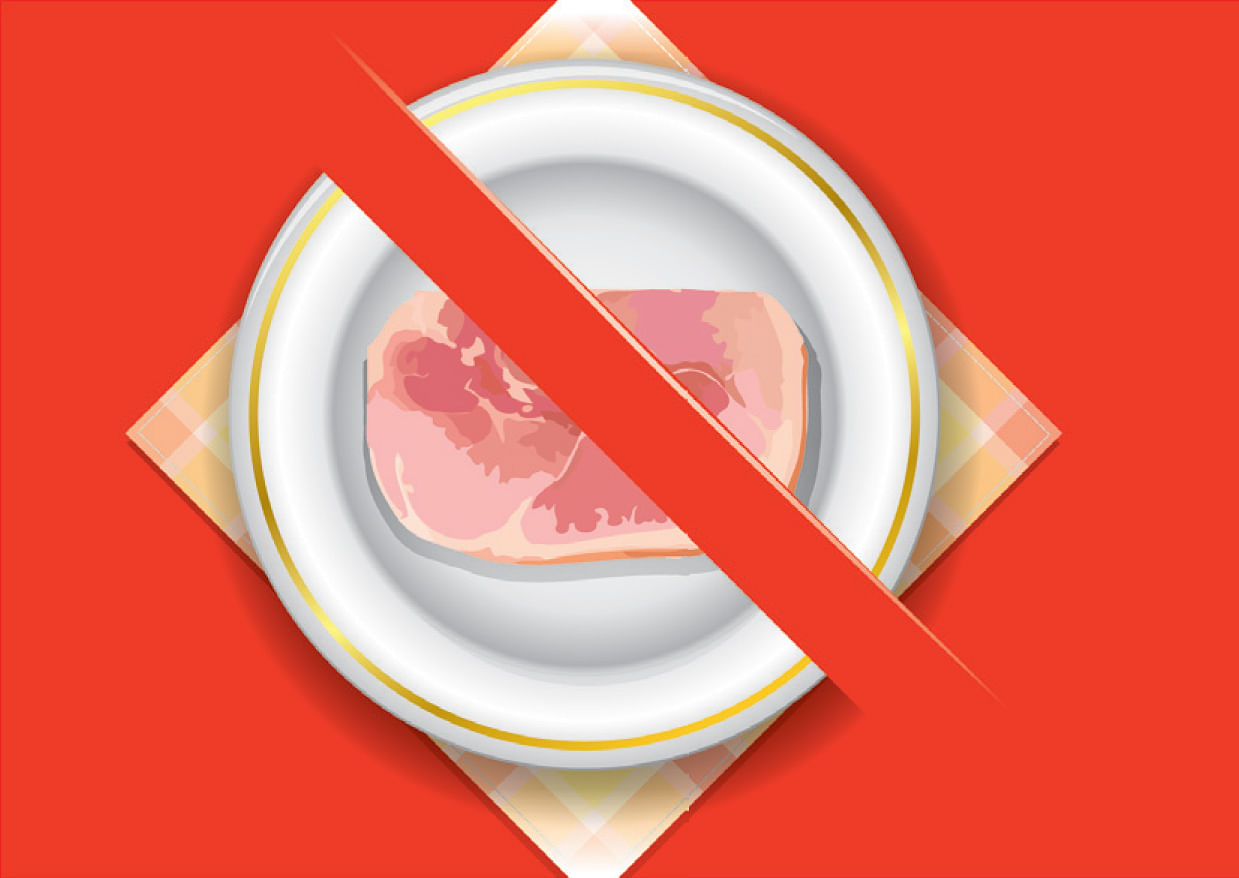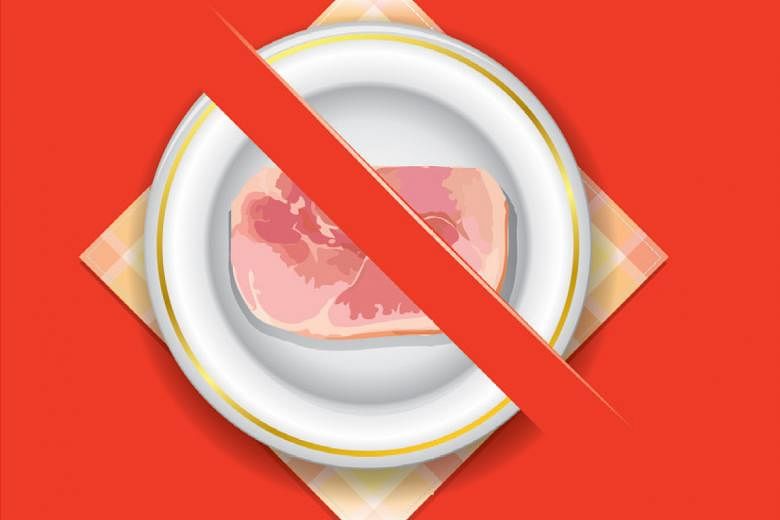I was rummaging through my fridge for something to satisfy my hunger pangs.
My fingers flittered past a tube of string cheese that, according to a study released two weeks ago, is the new crack. Cheese, it found, is as addictive as drugs.
I also found myself glancing past packets of instant noodles in my larder because everyone knows they will make your hair fall out in clumps.
I couldn't eat out because, going by another study published by the University of Illinois, dining at a restaurant was no better than scoffing down fast food.
Egg yolks are as bad as smoking, grains are slowly draining the life out of you and fruits aren't as healthy as you think.
Ham, bacon and sausages were aboveboard until last month, when they were declared cancerous by the World Health Organization (WHO).

After my failed forage, I found myself staring glumly at a sugar-free energy bar - a purchase made by my health-nut husband.
I was about to take a bite out of the Plasticine-textured object, when he popped into the kitchen and said he was saving that for a pre-training energy boost.
I gladly handed it back to him despite my growling stomach.
Then it struck me: What in the world is there left to eat to stay healthy?
The past several years, it seems, have been chock-full of contradictory health food studies that have caused me to not only scrutinise the food I eat, but also to make me lose my appetite.
I was happily popping calcium supplements last month, a must for pregnant women (I am six months along), when I read that such pills could increase the chances of a heart attack by a heart-stopping
86 per cent, courtesy of a German-Swiss study.
No point having strong bones when your heart isn't beating, I reasoned.
Unfazed, I switched to eating yogurt and drinking 250ml of milk daily.
Just when I was getting used to the new habit, I got sucker- punched by an article written by a scientist - a Ms Jane Plant, no less. Cancer-ridden and given just months to live, she switched to a meat-free, dairy-free, Asian-style diet while undergoing chemotherapy.
Within six weeks, the lump in her neck had vanished. She was in remission within a year.
But there's more.
A large observational study in Sweden, published last year, found that women who drank more than three glasses of milk a day were twice as likely to die early as compared with women consuming less than a glass.
And as if that wasn't enough, to twist the knife, the copious milk-drinkers didn't even have better bone health during the time they were living. In fact, they had more fractures, particularly ones to the hip.
The more I read up, the more confused I became: Should I stop drinking milk altogether or keep consumption to one glass or less a day? Or should I switch back to calcium pill-popping?
The WHO data found that a person who eats a little less than 57g of processed meat a day, equal to about two slices of salami, is
18 per cent more likely to develop colorectal cancer than someone who eats none.
Okay. So, what if I eat none for months, then suddenly scoff down three German sausages and a minced beef patty at a barbecue like I did last week?
And since grain is such a killer, should I give up bread altogether or switch to the healthier brown version instead? And, wait, is rice considered a grain? And if so, is it as bad as wheat?
Things can be both good and bad for you, quipped my husband, compounding a confusing situation.
I felt like punching him, then it hit me.
When I was younger, everything in the world fell neatly into two categories: Right or wrong. Black or white.
Now that I am an adult, I know that most things in the world aren't clear-cut. They're mostly grey.
Some people may tolerate milk just fine, while others may develop mysterious reactions to it.
Eating processed meats daily could lead to colorectal cancer, depending on your risk of developing cancer to start with - a likelihood that depends on myriad factors.
Just like how breastfeeding may work for you and not someone else, or how different people get over break-ups differently, it could be that there is just no right way to consuming dairy, eggs, grain or meat, that applies across the board.
Perhaps I should look at such studies with different eyes and treat them not as gospel truth, but with a pinch of salt (just a pinch, mind you. Too much and you could develop high blood pressure).
They are, after all, like people's opinions: Just another factor to consider when you are making up your own mind. Nutrition, like most things in life, is not a one-size-fits- all issue.
The answer is: It depends.
And that's just fine.


